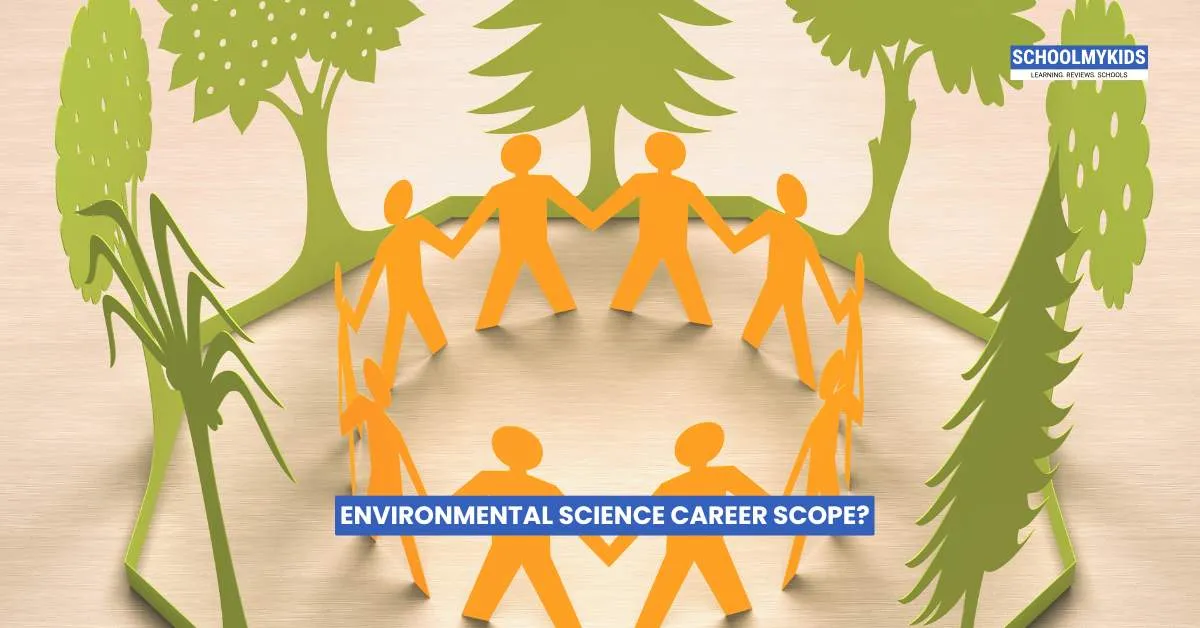Introduction
As the world confronts climate change, pollution, biodiversity loss, and resource scarcity, environmental science has emerged as one of the most important and urgent fields of study. No longer confined to labs or forests, environmental science is now central to policymaking, business strategy, urban development, and global diplomacy. If you're passionate about the planet and want a career that blends science, advocacy, and real-world impact — environmental science offers powerful opportunities.
What is Environmental Science?
Environmental science is an interdisciplinary field that studies the interactions between the physical, chemical, and biological components of the environment. It seeks to understand how natural and human-made systems operate, and how to solve environmental problems through science, technology, and sustainable practices.
Why Choose Environmental Science?
- Urgency of the Field: Climate crisis and sustainability are now global priorities.
- Wide Scope: Combines biology, chemistry, geology, policy, and data science.
- High Demand for Experts: Government, private, and international organizations are hiring environmental professionals at an increasing pace.
- Meaningful Work: Helps protect ecosystems, human health, and future generations.
Key Topics in Environmental Science
| Area | Focus |
| Climate Science | Global warming, greenhouse gases, climate modeling |
| Ecology & Biodiversity | Ecosystem dynamics, species conservation |
| Pollution Control | Air, water, and soil pollution treatment |
| Sustainability Studies | Renewable energy, waste management, circular economy |
| Environmental Policy | Laws, regulations, treaties, and ethics |
| Remote Sensing & GIS | Monitoring environmental change using technology |
Career Opportunities in Environmental Science
| Sector | Roles |
| Government & Public Policy | Environmental Officer, Climate Policy Advisor |
| Corporate Sustainability | ESG Analyst, Sustainability Manager |
| Academia & Research | Environmental Scientist, University Professor |
| NGOs & Think Tanks | Conservationist, Program Manager, Climate Analyst |
| Environmental Consultancy | Risk Assessor, Environmental Consultant |
| Technology & Data | GIS Analyst, Environmental Data Scientist |
Skills You’ll Develop
- Research and lab analysis
- Data interpretation using tools like GIS
- Environmental impact assessment
- Scientific writing and reporting
- Communication for advocacy and education
Top Institutes for Environmental Science
- Indian Institute of Science (IISc), Bengaluru
- TERI School of Advanced Studies, Delhi
- Yale School of the Environment
- Wageningen University, Netherlands
- University of California, Berkeley
Emerging Areas in the Field
- Climate Adaptation & Resilience: Helping communities prepare for climate impacts.
- Green Technology: Innovation in renewable energy, biodegradable materials, carbon capture.
- Environmental Finance: Carbon credits, climate bonds, and green investments.
- Urban Ecology: Designing eco-friendly cities and infrastructure.
- Environmental Journalism: Communicating scientific issues to the public.
Challenges in the Field
- Navigating political and corporate interests
- Field work in difficult or remote areas
- Requires a multidisciplinary mindset and continuous learning
Is it Financially Rewarding?
While entry-level salaries may be moderate, professionals in corporate sustainability, international organizations, or consultancy can earn well. With experience and specialization, the earning potential rises significantly, especially in sectors like green finance, carbon trading, and ESG (Environmental, Social, and Governance) reporting.
Conclusion
Environmental science isn’t just a career — it’s a commitment to preserving life on Earth. It bridges science and society to solve some of the planet’s most pressing issues. If you’re ready to work across disciplines, drive impact, and help chart a sustainable path for humanity, environmental science is not just relevant — it's vital.









Be the first one to comment on this story.